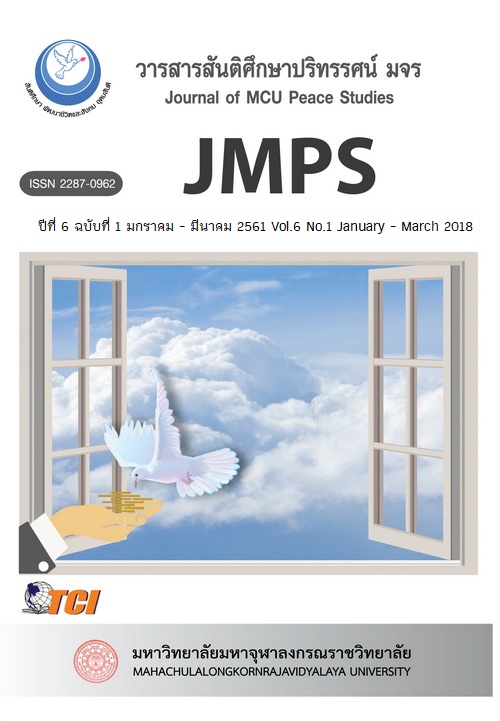The post-conflict management after 2010 massacres in Thai society
Main Article Content
บทคัดย่อ
The present study aims to investigate the administration after the conflicts between the government and the United Front of Democracy Against Dictatorship (UDD) among three governments: Abhisit’s government, Yingluck’s government, and Prayut’s government by examining and analyzing related documents relevant to those issues.
The results of the study revealed the following:
1) The administration amid a number of problems after the Thai political dispute and violence of Abhisit’s government was inconclusive since the government was marked as the “litigants” of the UDD. The government decided to set up problem-solving committee to manipulate the problems after the crisis including the judiciary that had been accused of “political bias” ignoring the fact that the military took the lead as the government’s followers affecting the criminal justice system in the country.
2) The administration after Thailand’s political conflict of Yingluck’s government remained unsolved. Although her government substantially approved a compensation fund for victims of recent political unrest, the victims were abandoned and received no justice. Furthermore, the government relied heavily on the amnesty leading to the military coup in 2014.
3) The political crisis management of Prayut’s government had been the major focus of the society’s attention despite his various attempts of returning harmony to Thai society. However, the victims of political unrest in the country were unsure of how to protect themselves and whom to trust after the administration of the crisis as a result of governing the country under a condition of the government after a coup d’état and involving in litigation as being the disputant of many conflicts and insurgent events.
Article Details
ทัศนะและความคิดเห็นที่ปรากฏในบทความในวารสาร ถือเป็นความรับผิดชอบของผู้เขียนบทความนั้น และไม่ถือเป็นทัศนะและความรับผิดชอบของกองบรรณาธิการ ยินยอมว่าบทความเป็นลิขสิทธิ์ของวารสาร

